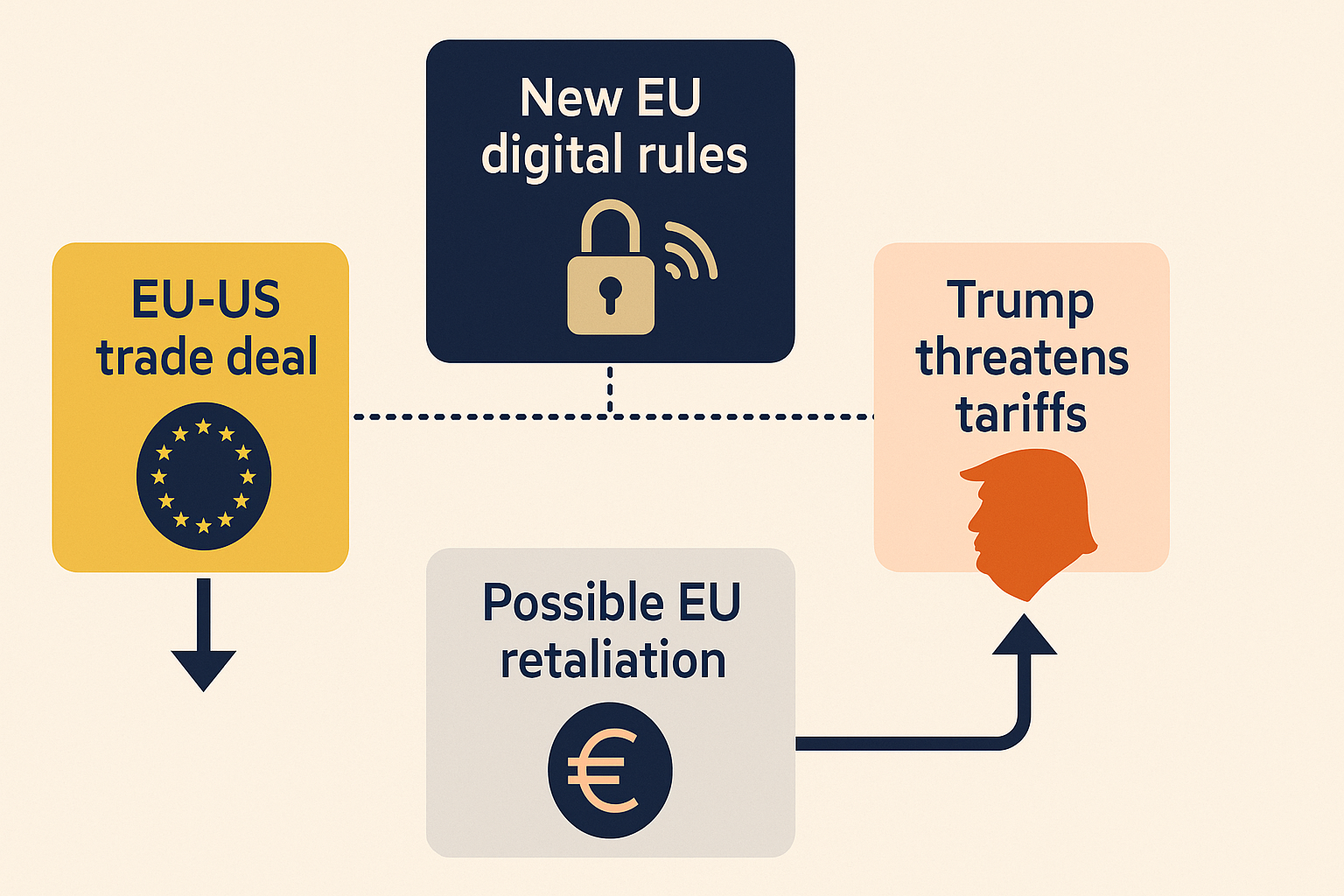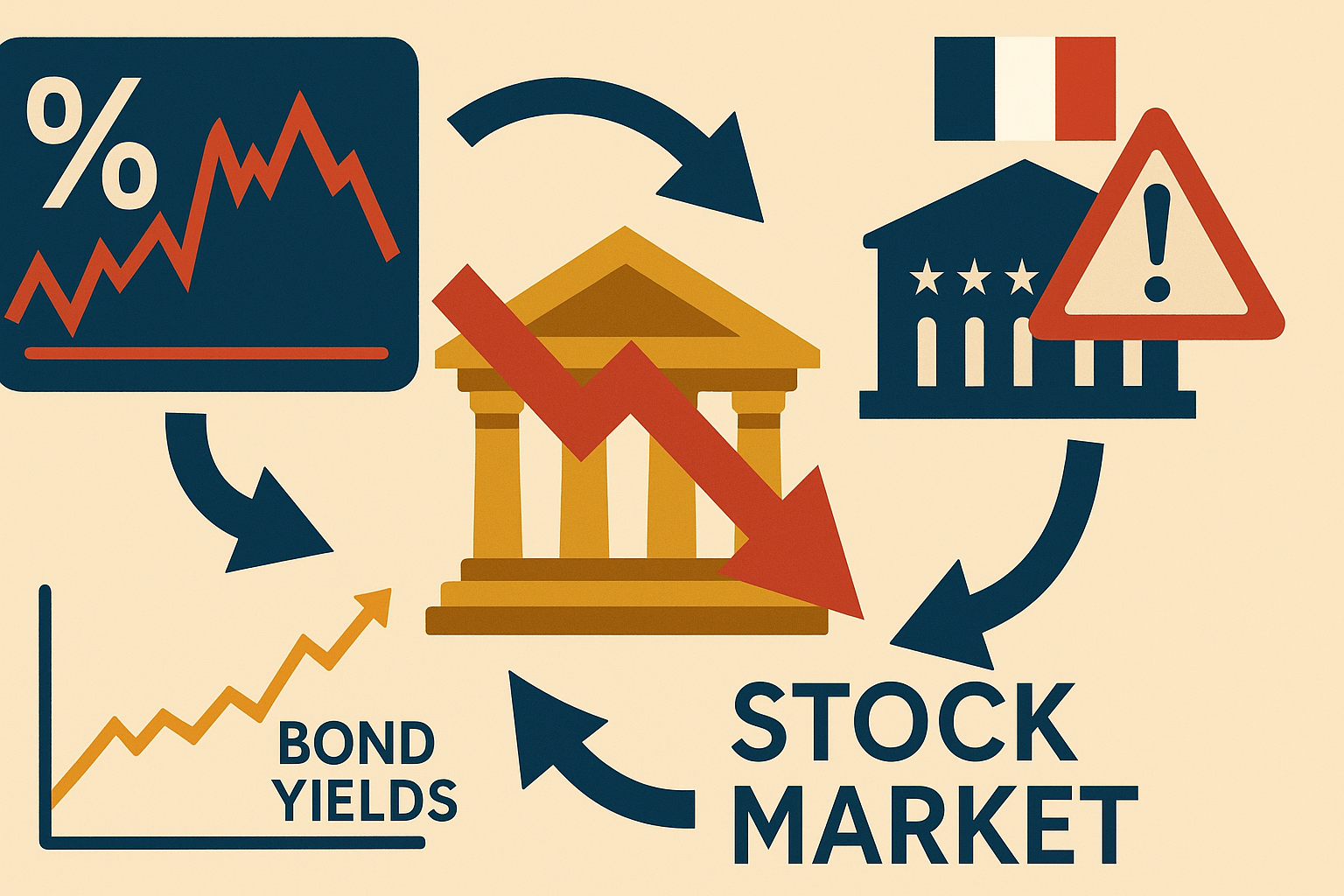The European Union has vowed to move forward with its landmark digital regulations, even as US President Donald Trump threatened retaliatory tariffs and export controls against countries he claims are targeting American tech companies.
EU’s Response
Speaking on Tuesday, European Commission spokesperson Paula Pinho underscored the bloc’s position, saying:
“It is the sovereign right of the EU and its member states to regulate economic activities on our territory which are consistent with our democratic values.”
Pinho added that digital regulation was not part of the EU-US trade agreement concluded in late July, when Brussels and Washington struck a deal in Scotland involving new tariffs on goods.
Trump’s Threats
Trump issued his warning via his Truth Social platform late Monday, criticizing what he called discriminatory rules, laws, and taxes imposed by the EU and other countries on US tech companies.
The comments come just days after the EU and US detailed their transatlantic trade agreement, under which the EU agreed to impose 15 per cent tariffs on most goods, while the US pledged to reduce tariffs on European cars from 27.5 per cent to 15 per cent.
Brussels Holds Its Line
Despite the threats, EU officials say they are pursuing a strategy of restraint and calm. One diplomat noted that making concessions risks being perceived by Trump as weakness:
“Concessions are seen by him as a sign of weakness making him come back for more.”
Washington had previously pushed for the EU to ease restrictions under its Digital Services Act (DSA), which requires large platforms to remove harmful content and boost transparency. However, Brussels resisted, arguing that its rules are designed to protect democratic standards and consumer rights, not to unfairly target US firms.
Pending EU Decisions on US Tech
Trump’s warning comes as the EU prepares to issue rulings on ongoing investigations into American tech giants. Among them:
- X (formerly Twitter), owned by Elon Musk, is under review for deceptive design practices and lack of transparency under the DSA.
- Apple and Meta (Facebook’s parent company) face scrutiny under the Digital Markets Act (DMA), which aims to limit the dominance of “gatekeeper” platforms.
Several EU member states, including France, Italy, and Spain, also operate their own digital services taxes, further heightening tensions.
Trade Tools at EU’s Disposal
If Trump follows through on new tariffs or sanctions, the EU could respond with levies on up to €93 billion of annual US imports—measures already approved but currently suspended until February.
Additionally, the EU could use its “anti-coercion instrument” to retaliate against Big Tech, potentially restricting access to public procurement contracts or blocking royalty payments.
France has been especially vocal in pressing for stronger retaliatory tools, expressing dissatisfaction with the trade deal struck in Scotland.
Broader Implications
The standoff highlights the fragile balance in EU-US relations, where trade cooperation coexists with disputes over digital regulation. The UK is also watching closely, as it recently negotiated a mini trade deal with Washington and faces its own challenges over digital services taxes.
While Trump’s threats raise the risk of a renewed transatlantic trade war, Brussels has so far remained firm in defending its digital regulatory framework, which it views as central to safeguarding democracy and fair competition in the digital marketplace.








